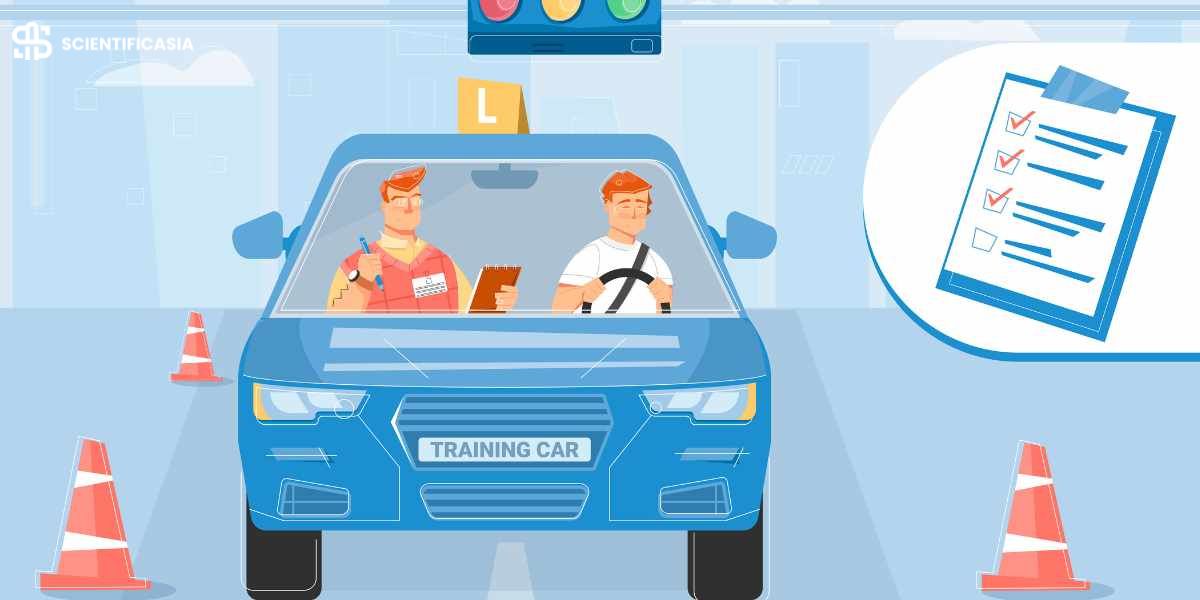Learning to drive is an important milestone in our lives. Hence, it’s important to choose the right driving instructor to guide you toward the path of driving education. An instructor plays a crucial role in shaping the students’ driving techniques, habits, mentality, and mindset. They provide an environment conducive to proper learning that significantly impacts the students. However, to impart knowledge to the students successfully, instructors need to build a strong rapport and trust with their students. It helps foster a positive learning environment, boost confidence, and promote better skill acquisition. Driving instructor course teach various techniques and strategies to help instructors develop the right method of driving instruction. Here are six key strategies for driving instructors to achieve good rapport and trust with their students:
Make a Positive First Impression
When the students first meet their instructors, they are nervous, anxious, excited, and apprehensive about the new chapter of their lives. As instructors, you should greet them warmly and welcome them to come to you for learning. Novice drivers are often unaware of how driving education progresses. You can give them a detailed overview of the driving lessons and explain your teaching process upfront. This can help reduce anxiety and help build initial trust, encouraging them to be equally upfront and honest in their queries.
Ensure Open Communication
Open communication is essential in building trust, no matter the situation. And for a driving instructor, it is doubly important. Driving is a complicated activity and new drivers are sure to have many questions and personal opinions about driving techniques and their skills. Instructors should ensure that the students feel comfortable in coming to them with questions and suggestions. They should listen actively and give opinions or correct misconceptions wherever necessary. This makes the students feel heard and understood and increases their engagement in learning.
Try to Give Personalized Instruction
Each student is unique in their skills and approach to driving. Instructors need to create a rapport with each student individually. They should try to learn more about the students and tailor their teaching according to the student’s temperament, pace, and learning style. For example, a driving instructor in Sydney should ensure the students are well aware of the specific road rules for driving in Sydney. This helps the students to open up about their individual doubts and increases their respect for the instructor. Personalized instructions are also tailored specifically for the individuals and can help them improve their specific strengths and weaknesses. This increases their confidence in their driving abilities and their trust in your teaching.
Positive Reinforcement
Positive feedback is the basis of any successful driving instruction. Instead of singing false praises, instructors should give their students honest and fair feedback. However, instead of focusing on the mistakes, instructors should try to focus on the developments and present their feedback in a positive manner. Instead of saying, ‘You don’t know how to park properly”, try to appreciate their overall driving skills and point out how they still need improvement in their parking techniques. You can then go on to tell them where they’re making mistakes and show them what to do for improvement. This helps boost the student’s confidence and motivates them to keep improving.
Patience and Empathy
Driving instructors also need to be patient and empathetic towards their students. Whether you’re teaching a new skill or pointing out a mistake, try to be patient and kind. If students need to be taught some maneuvers again, don’t show your frustration if any. Instead, be kind to them and teach them again in more detail. This approach helps the students to understand and accept that mistakes are a part of learning. It also helps them manage their nerves and stay focused.
Consistency and Reliability
Driving instructor courses like TLI41222 also put emphasis on consistency and reliability in a teacher-student relationship. It is important for instructors to be punctual, prepared, and consistent in their teachings. Cultivating these habits helps build a secure and trustworthy learning environment where students understand the importance of self-discipline. It gives a favorable impression and motivates the students to also cultivate the same habits in their approach to driving.
Conclusion
Building rapport and trust with students requires time, effort, and dedication. A supportive, empathetic, and communicative environment helps students become confident, competent, and safe drivers, leaving a lasting positive impact on their driving journeys. Driving instructor courses from reputed institutes like the Academy of Road Safety teach the instructors the right strategies to approach driving education. It helps not just impart essential driving skills but also cultivate admirable driving habits, a safety-first mindset, and the right approach to driving.
Read more:
The Importance of Post-Crash Counseling for Drivers and Employees
The Future of Autonomous Vehicles: Impacts on On-Road Safety and Travel
















